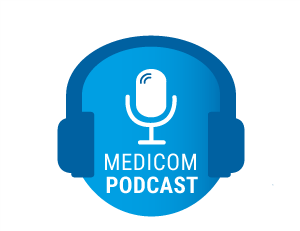"We hope that this dual-targeted CAR-T will lead to better outcomes with less toxicity for patients with relapsed, refractory aggressive non-Hodgkin lymphoma," Dr. Nirav Shah of Medical College of Wisconsin in Milwaukee told Reuters Health by email. "We also hope that the rapid manufacturing will allow patients to get CAR-T cells in an expedited fashion."
"Our phase-1 study has demonstrated safety and a promising response profile," he noted. "However, larger studies are indicated to confirm this efficacy signal, and we hope to do that in the planned phase-2 trial. We hope to launch in the first quarter of 2021 and expect the study to last one year."
As reported in Nature Medicine, the first-in-human, dose-escalation study involved 22 patients with relapsed, refractory B cell non-Hodgkin lymphoma or chronic lymphocytic leukemia (median age at infusion, 57; 86% men; median lines of previous therapy, four).
CAR-T cells were manufactured using the CliniMACS Prodigy system. Doses ranged from 2.5 × 10(5)-2.5 × 10(6) cells per kg. Manufacturing was set at 14 days, with the goal of infusing non-cryopreserved LV20.19 T cells.
In the absence of dose-limiting toxicity, a dose of 2.5 × 10(6) cells per kg was chosen for expansion. Grade 3-4 cytokine release syndrome (CRS) occurred in one (5%) patient, and grade 3-4 neurotoxicity, in three (14%). The median time to CRS was five days and median time to neurotoxicity was six days.
At day 28, 18 (82%) patients achieved an overall response, 14 (64%) had a complete response, and four (18%) had a partial response.
Among patients who achieved a complete response by day 28, the median duration of response (DOR) was not reached with a median follow-up time of 10.1 months; those who achieved a partial remission had a median DOR of 2.3 months. The median overall survival for all patients was 20.3 months.
The authors note that loss of the CD19 antigen was not seen in patients who relapsed or experienced treatment failure.
Summing up, they state, "On-site manufacturing and infusion of non-cryopreserved LV20.19 CAR-T cells were feasible and therapeutically safe, showing low toxicity and high efficacy. Bispecific CARs may improve clinical responses by mitigating target antigen downregulation as a mechanism of relapse."
Dr. Miguel Perales, Chief, Adult Bone Marrow Transplant Service at Memorial Sloan Kettering Cancer Center in New York City, told Reuters Health in an email, "By targeting both CD19 and CD20 at the same time, (this approach) decreases the risk of the cancer cells becoming resistant by losing CD19 expression, which can happen after treatment with the current FDA- approved CAR-T cells, which only target CD19."
In addition, the novel cells were produced "on a device that can sit on a desktop - so-called point-of-care CAR-T production," he said. "This bypasses the current model for FDA-approved CAR-T cells, where cells are collected from the patient, shipped to the company where the manufacturing takes place and then shipped back...It also bypasses the need to build an expensive laboratory facility at the institution to generate these types of cellular therapies. This means this approach could be readily exportable to centers in the US and elsewhere."
CAR-T cells currently cost US$373,000 for lymphoma, he noted. "In countries where the current cost...is unaffordable, you can even envision a situation where the national healthcare system supports this type of initiative."
"If planned follow-up studies are successful, we may see this decentralized manufacturing model becoming the norm, where centers have a number of different constructs targeting different types of cancers and can pick the one that is best suited to the patient they are treating," he added. "We can think of this plug-and-play point-of-care CAR T cells."
Dr. Perales has received research support for clinical trials from Miltenyi Biotec., which manufactures the Prodigy device used to produce the study cells.
By Marilynn Larkin
SOURCE: https://go.nature.com/3lNubJe Nature Medicine, online October 5, 2020.
Posted on
Previous Article
« Fewer complications with transcarotid revascularization vs endarterectomy Next Article
Upadacitinib superior to abatacept for arthritis but sparks more side effects »
« Fewer complications with transcarotid revascularization vs endarterectomy Next Article
Upadacitinib superior to abatacept for arthritis but sparks more side effects »
Related Articles
September 24, 2021
Subcutaneous epcoritamab shows promise in some non-Hodgkin lymphoma patients

June 26, 2023
ASCO 2023 Highlights Podcast
© 2024 Medicom Medical Publishers. All rights reserved. Terms and Conditions | Privacy Policy
HEAD OFFICE
Laarderhoogtweg 25
1101 EB Amsterdam
The Netherlands
T: +31 85 4012 560
E: publishers@medicom-publishers.com

